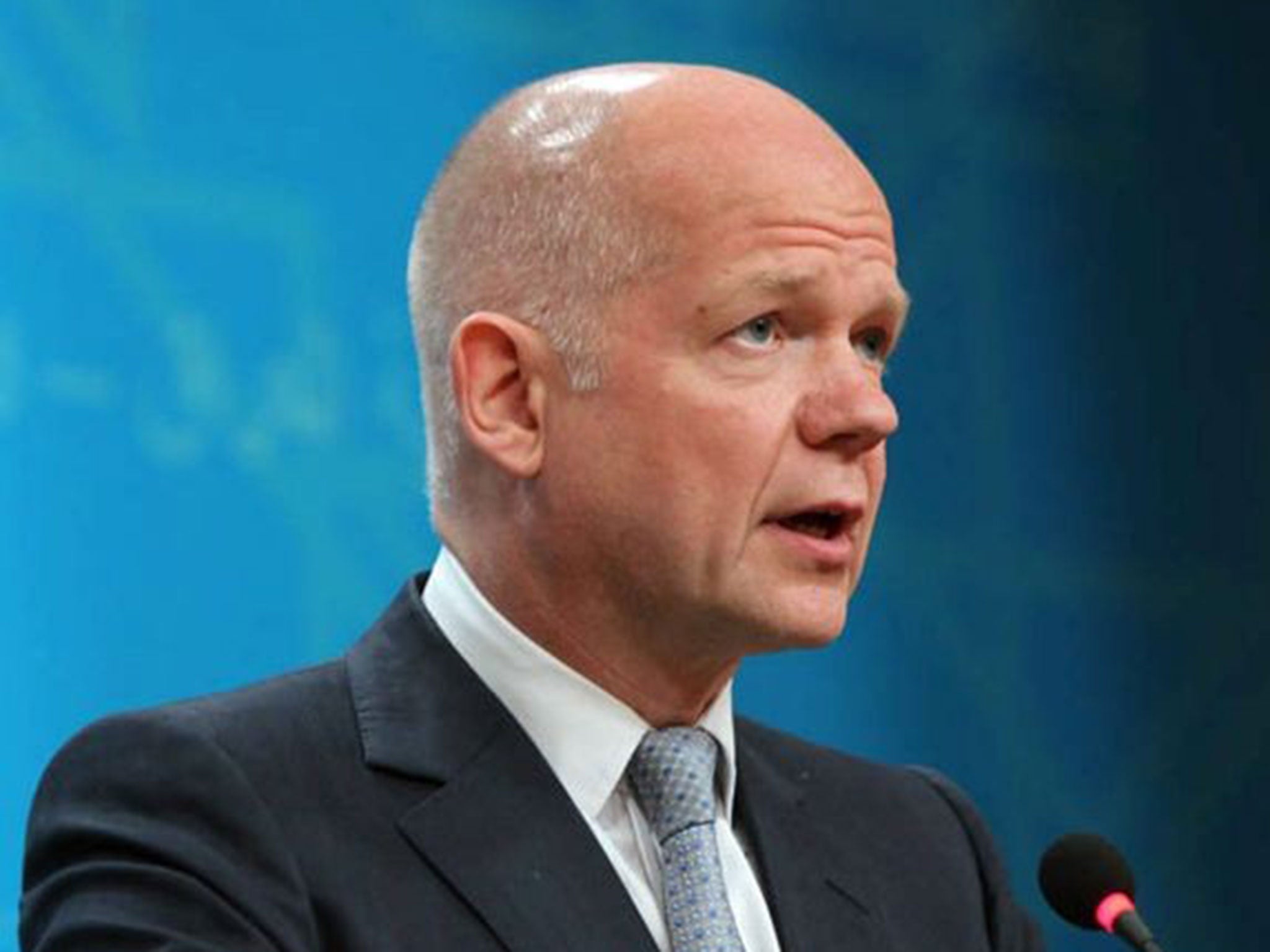William Hague presses case of murdered Britons with new Indian government
Six men were initially charged with the murder of the British citizens but they were released on bail

Your support helps us to tell the story
From reproductive rights to climate change to Big Tech, The Independent is on the ground when the story is developing. Whether it's investigating the financials of Elon Musk's pro-Trump PAC or producing our latest documentary, 'The A Word', which shines a light on the American women fighting for reproductive rights, we know how important it is to parse out the facts from the messaging.
At such a critical moment in US history, we need reporters on the ground. Your donation allows us to keep sending journalists to speak to both sides of the story.
The Independent is trusted by Americans across the entire political spectrum. And unlike many other quality news outlets, we choose not to lock Americans out of our reporting and analysis with paywalls. We believe quality journalism should be available to everyone, paid for by those who can afford it.
Your support makes all the difference.Foreign Secretary William Hague pressed British concerns about the delay in delivering justice for three UK citizens killed in communal violence in India when he visited Delhi this week, his office has said. It said Mr Hague’s Indian counterpart “took note” of the concerns.
In advance of Mr Hague’s visit to India with Chancellor George Osborne, the family of the three men killed in Gujarat in 2002 had urged the minsters to raise the issue with new Prime Minister Narendra Modi, whom they both met. They said 12 years after the killing of the three men, the remains had still not been returned to them.
As it was, Mr Hague instead brought up the matter with India’s Foreign Minister, Sushma Swaraj.
“The Foreign Secretary raised this case during his call on Foreign Minister Sushma Swaraj, the appropriate person to raise consular issues with,” said a spokeswoman for the Foreign Office in London.
She added: “The Foreign Secretary raised our concern about the delays in taking forward these cases and undertook to follow up with more detail in writing. Mrs Swaraj took note of our concerns.”
Mr Hague and Mr Osborne were first UK ministers to meet Mr Modi, who for a decade was subject to a boycott by Britain and others western nations because of allegations over killings of hundreds of Muslims in a massacre in Gujarat, where he was chief minister.
When Britain ended its boycott in October 2012, one of the reasons given was that the move would better help the UK secure justice for the relatives of the men. Britain’s envoy to India, Sir James Bevan, raised the issue with Mr Modi.
Yet a spokesman for the relatives of the three men – brothers Saeed and Shakil Dawood, and their friend, Mohammed Aswat – say there has been no progress in the case, which appears to be stuck in the courts system.
The three men, originally from Gujarat, were killed in the spring of 2002 while they were on a visit to the state as tourists. Their trip coincided with a wave of anti-Muslim violence and killing that gripped part of the Gujarat after up to 60 Hindu pilgrims died in a fire on a train. In the aftermath of the attack, it was alleged the fire was started by a Muslim mob. Thirty-one people were eventually convicted by the Gujarat courts and 63 acquitted.
The three Britons were killed the following day, after stopping at a roadblock at Prantij, 40 miles north-east of Ahmedabad. The remains of two of the men were eventually recovered after efforts by the family and the British government. Another member of the family escaped and survived. Shakhil Dawood’s body has never been found.
Mr Modi has always denied claims that he allowed the killings of up to 2,000 Muslims to happen and a judicial probe concluded there was insufficient evidence to charge him.
In the past 12 years, the courts in Gujarat have convicted a total of 145 people, including one of Mr Modi’s ministers, Maya Kodnani, who was jailed for 28 years. Yet the case of the Britons has been repeatedly delayed.
Six men were initially charged with the murder of the British citizens but they were released on bail and a number of key witnesses turned hostile. At the beginning of 2012, two former British diplomats gave testimony via video.
There was no immediate comment on Friday from India’s Foreign Ministry.
Join our commenting forum
Join thought-provoking conversations, follow other Independent readers and see their replies
Comments